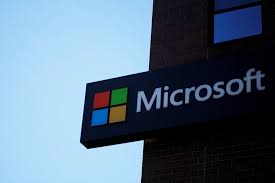Determined to tap from the impact of artificial intelligence (AI), which has dominated discussions across the globe, Microsoft, through its 4Afrika initiative recently organized AI Bootcamp to up-skill developers and drive inclusion in the industry.
At present, the number of global organizations deploying AI for sustainability and growth has increased by 270 per cent in just four years.
While AI’s acceptance and adoption among businesses is still in early stages, AI is primed to be the driving force of the fourth industrial revolution.
In line with this, Microsoft said it would make AI available to everyone on the continent in line with its global mission to empower every person and organization on the planet to achieve more.
The firm also expressed determination to partner with forward-thinking policy makers, innovative startups, technology partners, civil society groups and stakeholders to promote the growth of a vibrant AI ecosystem in Africa that enables inclusive growth and provides a clear and trusted path to digital transformation.
Regional Director, Microsoft 4Afrika, Amrote Abdella, explained that the AI Bootcamp, hosted by Data Science Nigeria (DSN) was aimed at upping the skill of locals in using deep learning concepts to drive financial inclusion.
According to him, 66 per cent of the population in sub-Saharan Africa was listed as unbanked but the proliferation of mobile banking across the continent has increased financial inclusion, and AI powered intelligent applications are now taking it further.
Last year, he said, was an important one as it shifted current perceptions around AI, demonstrating it as a technology that is here to augment human capabilities, not replace them, and to benefit the speed and scale of any organization, large or small.
He said: “Across Africa, the drive for AI is similar, and continues to grow as access to high quality broadband and cloud computing improves.
“Organizations are recognizing AI’s ability to help with some of the continent’s most pervasive problems, from reducing poverty to improving healthcare and enhancing crop yields to feed a growing population.
“Many of our local partners, including SMEs and startups, have already begun their AI journeys. Fintech startup, MoVAS Group, who we met in 2016, is now building AI into their credit-scoring algorithms, enabling more unbanked farmers and small business owners to access loans the first time.
“AI can capture and crunch large volumes of non-traditional data, such as mobile wallet transactions, that enable service providers to make automated loan decisions to new customers, with no previous financial track records, in seconds.
“Developing this kind of AI capacity in Africa is essential, not only to ensure our 200 million-strong youth population is equipped for jobs of the future, but also to ensure local AI systems themselves are unbiased and inclusive”, he added.
Abdella maintained that Africa needs is a richer pool of local data, coupled with AI applications that are built by skilled local teams with diverse demographic, gender, ethnic and socio-economic backgrounds.
To achieve this, he stressed that outdated processes need to be digitized, while education systems need to adapt quickly, and digital literacy programmes need to be more far-reaching.
He said: “Through Microsoft’s various programs, from skills development initiatives to growing the startup ecosystem, we are working to help make an AI-enabled future in Africa a reality.
“In every AI endeavor, our goal is to augment and amplify human ingenuity, accelerate economic and social prosperity. African innovators revolutionized the way mobile technology is used, and we look forward to seeing what they’ll do next with AI,” he said.

 Health1 week ago
Health1 week ago
 Business1 week ago
Business1 week ago
 Health7 days ago
Health7 days ago
 Latest1 week ago
Latest1 week ago
 Football7 days ago
Football7 days ago
 Latest1 week ago
Latest1 week ago
 Education5 days ago
Education5 days ago
 Crime7 days ago
Crime7 days ago

